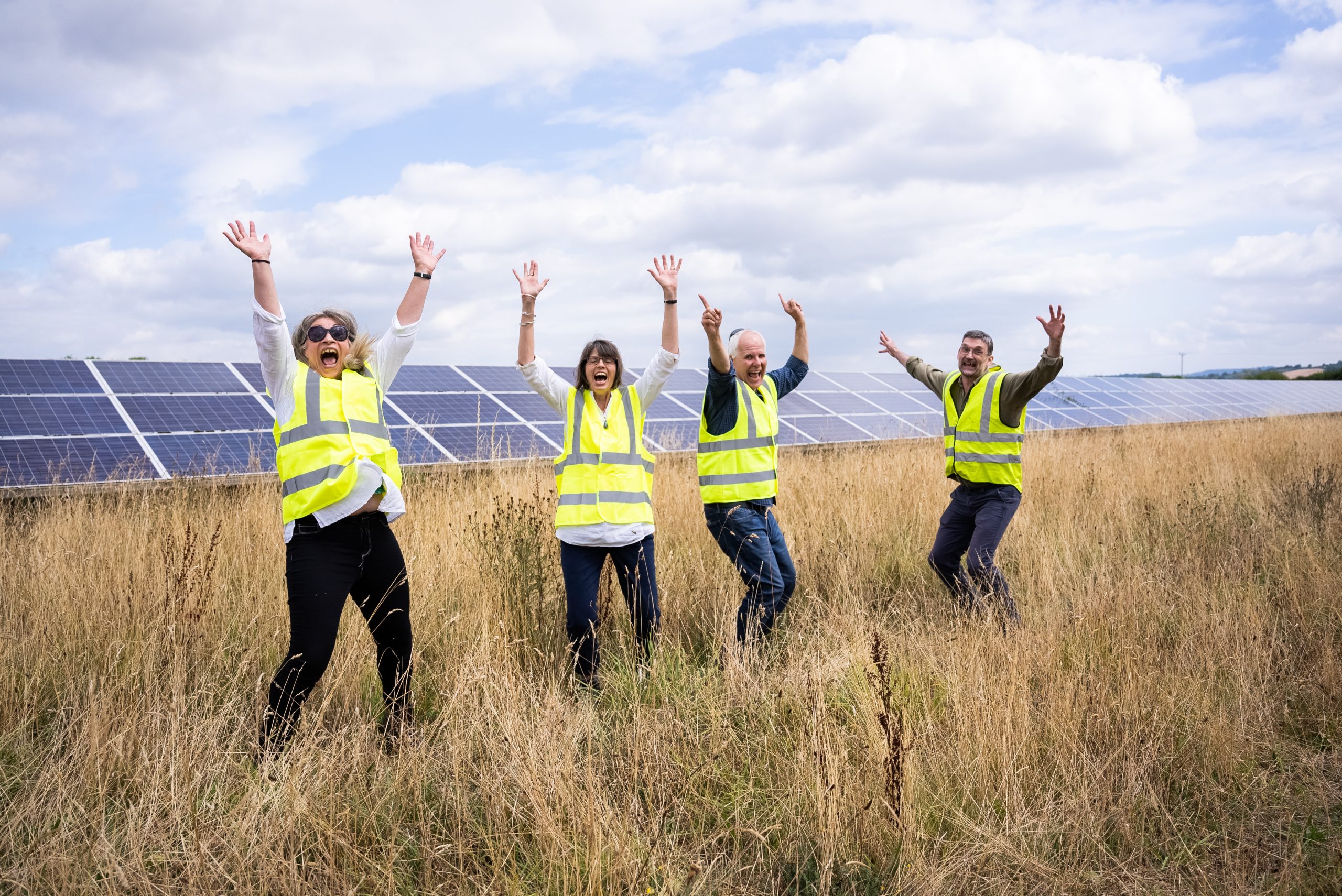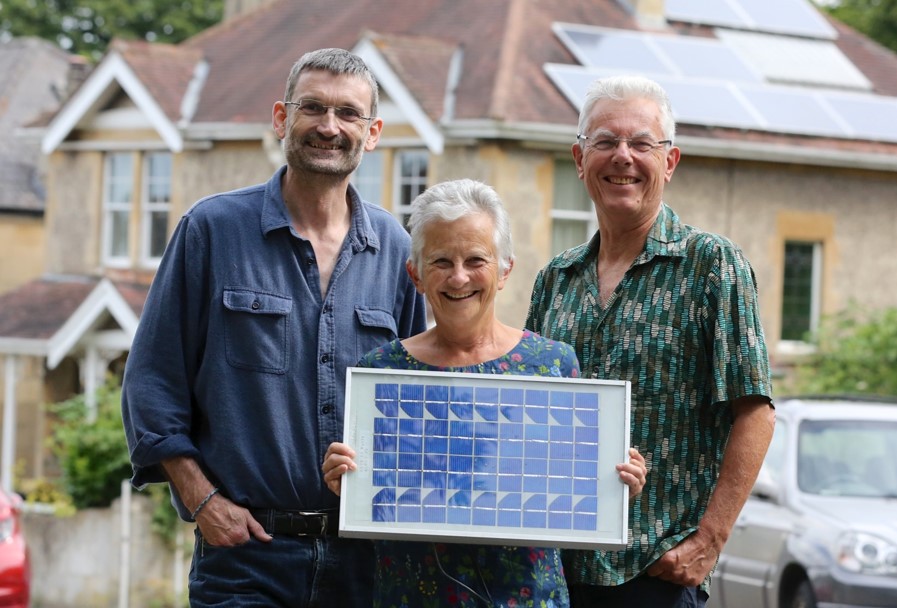BWCE Community Fund support helped Energy Sparks to test its website and energy education programme in local schools. The project has now gone nationwide.
Energy Sparks is an online school-specific energy education and analysis programme which teaches primary and secondary school pupils about energy, and empowers them, their teachers, school management and the wider school community to take action to make their schools more energy efficient. Through a range of educational and analysis activities, pupils increase energy literacy, motivation and agency to make their schools more energy efficient, whilst saving money and reducing their carbon footprint.
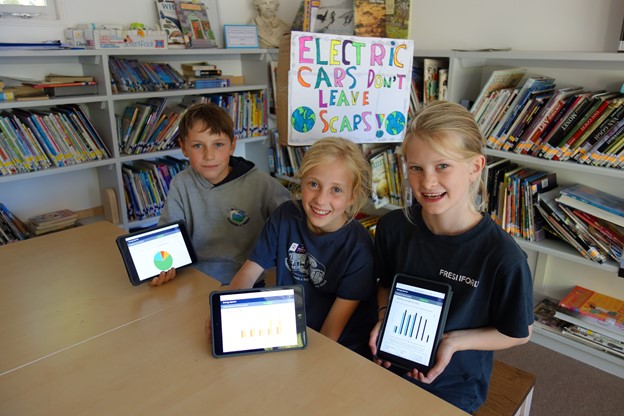 The project started when Transition Bath volunteers were given access to ½ hourly smart meter data for schools across Bath & North East Somerset (B&NES). This enabled the volunteers to provide energy audits which allowed them to analyse how efficiently schools were using energy. One of their early wins occurred when they noticed from the smart meter data that one local school was running their heating 24/7 365 days of the year. Volunteers helped the school make an immediate reduction of 65% of their gas consumption.
The project started when Transition Bath volunteers were given access to ½ hourly smart meter data for schools across Bath & North East Somerset (B&NES). This enabled the volunteers to provide energy audits which allowed them to analyse how efficiently schools were using energy. One of their early wins occurred when they noticed from the smart meter data that one local school was running their heating 24/7 365 days of the year. Volunteers helped the school make an immediate reduction of 65% of their gas consumption.
At about the same time B&NES had been running a competition combined with an education programme between school pupils in Bath to see who could save the most energy.
With the help of Bath:Hacked Transition Bath developed a website to combine these two ideas, with the automated analysis of schools’ energy use using smart meter data and an online education programme and competition between schools. In 2016 BWCE generously provided funding to develop the education programme and test it in local schools.
The success of this pilot helped Transition Bath acquire 2 years of funding from the Department of Business, Energy and Industrial Strategy to further develop support and resources for primary and secondary schools, develop its website, carry out in-school testing and evaluation, and roll out the programme across the UK.
Further BWCE funding in 2020 enabled Energy Sparks to develop a volunteer programme to make it easier for local schools to run energy efficiency activities by using volunteers from the school and local university communities. Lockdown provided the opportunity to develop a range of home learning activities for use by children and their families. Volunteer work in schools is being hampered by current Covid restrictions but this will be continued throughout 2021.
Currently Energy Sparks is working with almost 100 schools throughout the country, from South Wales to the Scottish Highlands, from Sheffield to East Sussex and from Oxfordshire to Durham. The clear presentation of energy data makes it easy for children of all ages to see when their school is using energy – and provokes questions about why electricity use at weekends is higher than expected or why school heating kicks in at 2am.
An example of positive action is that pupils from Freshford Primary School spotted that their school’s energy consumption fell massively during summer holidays when kitchen equipment was turned off. After some investigation they discovered that an inefficient freezer was costing the school £740 in wasted energy per year. They wrote to the Headteacher recommending a replacement; the electricity savings from this new freezer paid for its purchase within 4 months and will save the school about £7000 over the next ten years.
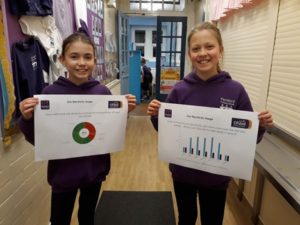 Energy Sparks uses open source data so that schools can compare their performance with similar schools in their areas or Trusts. These comparisons, plus the points schools score for completing activities, introduce a competitive element into the programme which really appeals to pupils. Headteacher Warrick Barton, Pensford Primary School, said, “The children are motivated by the competitive element as well as the desire to save money and energy.” Pensford pupils used the website to calculate that they could save £600 annually by turning off old electric water heaters.
Energy Sparks uses open source data so that schools can compare their performance with similar schools in their areas or Trusts. These comparisons, plus the points schools score for completing activities, introduce a competitive element into the programme which really appeals to pupils. Headteacher Warrick Barton, Pensford Primary School, said, “The children are motivated by the competitive element as well as the desire to save money and energy.” Pensford pupils used the website to calculate that they could save £600 annually by turning off old electric water heaters.
Pupil-based activities range from recording temperatures, conducting audits and running competitions to communicating energy issues to relevant staff and governors, writing policies and spreading the message to the wider community. Lesson plans can be used by class teachers to fulfil curriculum requirements and provide ideas for extending energy literacy throughout other areas of learning. Eco Clubs and Pupil Councils can use the yearly programmes and theme week guides to plan their action or involve the whole school.
Meanwhile school-specific analyses can make it clear for school management to see immediately where savings can be made as well as providing advice on energy efficiency investments. Text or email alerts notify users to irregular energy consumption enabling problems with wasteful equipment or boiler timers to be tackled promptly.
The project is also broadening its scope from energy efficiency to include activities and tools to support schools to reduce overall carbon emissions resulting from school dinners and transport. More schools are taking steps to tackle the Climate Emergency and Energy Sparks offers a way to empower children to take action on this with immediate and measurable impact. Alfie Parkin, a year 6 pupil at Freshford Church School said, “I enjoy the feeling that you are doing your bit to save the planet, and you know you are helping your school”.
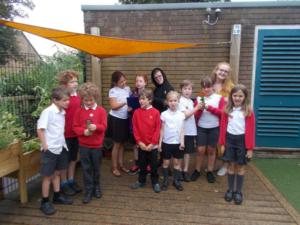 Recent long-term funding from the OVO Foundation will allow Energy Sparks, now a charity independent of its Transition Bath parent, to expand to help up to 350 schools ditch 6,000 tonnes of CO2 and save £1.9m in energy costs over the next three years. As more schools are forced to cut costs yet need to prioritise reducing their environmental impact, Energy Sparks, helping schools make valuable savings and empowering pupils to be active citizens, has the potential to be a real game-changer.
Recent long-term funding from the OVO Foundation will allow Energy Sparks, now a charity independent of its Transition Bath parent, to expand to help up to 350 schools ditch 6,000 tonnes of CO2 and save £1.9m in energy costs over the next three years. As more schools are forced to cut costs yet need to prioritise reducing their environmental impact, Energy Sparks, helping schools make valuable savings and empowering pupils to be active citizens, has the potential to be a real game-changer.
However, without funding from the BWCE Community Fund right at the outset, Energy Sparks might not have got off the ground.

